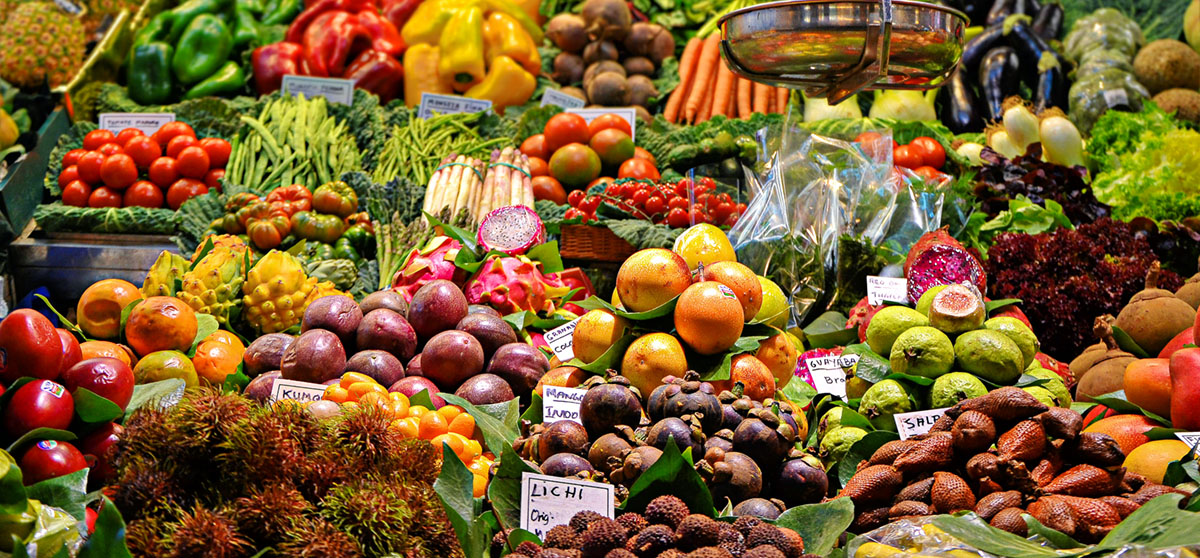
In naturopathic medical school, we were taught that all of the substances necessary to heal the human body can be sourced from the plant kingdom.
The possibilities are endless – nuts, seeds, roots, bark, leaves, fruits, herbs – served fresh, dried, frozen, extracted, or distilled as essences.
Folk medicine has long recognized the healing benefits of plants.

From Hippocrates’ “Let food be thy medicine and medicine be thy food,” to “An apple a day keeps the doctor away,” healers have recognized the medicinal benefits of the foods we put in our bodies.
Generally speaking, eating 5-7 servings daily of a variety of fresh organic fruits and vegetables will provide priceless nutrients and improve our health in numerous ways.
As our food supply becomes less predictable, more costly, and increasingly contaminated, there’s a rising tide of interest in growing our own healthy organic foodstuffs.
In our very small apartment patio, we’re currently growing lemons, limes, kumquats, blueberries, tomatoes, peppers, and a variety of herbs.
Even if people are unable to grow food, they are more than ever aware of the benefits of ginger, blueberries, turmeric, healing teas, and many other plant-sourced healing substances.
Our understanding of the active healing elements in plants has grown, too, and research has revealed some unexpected benefits.
- A study of 50 patients at Tabriz University of Medical Sciences showed that 40 grams a day (about 4 tbsp) of powdered sesame seeds compared favorably to the combination of 500 mg of Tylenol administered twice daily plus 500 mg of glucosamine for significantly decreasing the pain of arthritis of the knee. Animal studies have confirmed the benefits of sesame seed oil for arthritis.
- Ceylon cinnamon (NOT Cassia cinnamon) at less than one-half teaspoon per day can reduce blood sugar in Type 2 diabetes, lower triglycerides and LDLs, reduce neuro-inflammatory markers, and improve digestion.
- Peppermint tea has long been used for digestive upsets, in particular Irritable Bowel Syndrome. Topical peppermint oil has been used to alleviate headaches. For the recent outbreaks of (very painful) shingles, topical peppermint oil has been shown to reduce the pain of post-herpetic neuralgia.
- A study comparing the efficacy of nicotine gum vs lime juice concluded that fresh lime was effective as a smoking cessation aid, although nicotine gum was better at reducing cigarette cravings.
- A 2017 study showed that stevia extract was more effective than standard antibiotics at killing the bacterium associated with Lyme Disease, Borrelia burgdorfi. (For those unfamiliar with stevia, it’s a sweet-leafed plant that can be grown in a home garden.)
- Coffee has gotten mixed reviews. A fascinating release from the National Kidney Foundation indicated that 1 to 1.5 cups of coffee per day can reduce the risk of kidney stones by 40%.
- In the research literature, we find countless lesser-known health benefits of common foods. You won’t be disappointed if you decide to explore the healing powers of common plants such as dandelion “weeds” whose roots benefit liver health, and whose leaves have benefits for kidney health.
- Tasty borage flowers, the seeds of which contain anti-inflammatory gamma linolenic acid, carotenoid-rich volunteer pumpkins, and vitamin C-rich kumquats are other enticing foods that you might want to explore.
The list of healing foods is long and their healing properties are many. To summarize, the more abundant and varied the fresh organic food on your table, the lower will be your need for isolated supplements and manufactured chemical pharmaceuticals.
For information about the services we offer at Pacific Naturopathic, please give us a call at 650-961-1660. You can also use the convenient Contact Form to get in touch, or follow the link to: Consultations – Pacific Naturopathic. Thank you!

